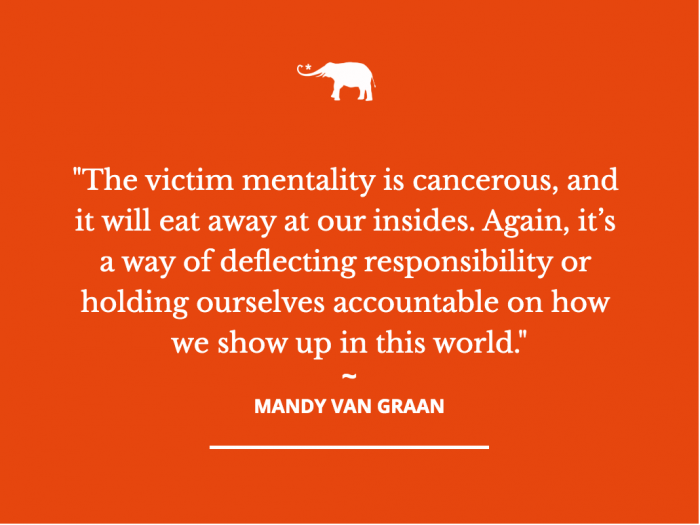View this post on Instagram
Warning! Some f-bombs and other naughty language sprinkled here and there.
Rewind to a week ago, I’m posting an Instagram story.
It’s from a popular influencer, AdamCam. He loves the f-word, therefore I love listening to what he has to say. The post is about letting go of toxic people—if someone doesn’t bring value to your life, say fuck it, and move on.
As I share to my story, I have one person in my mind that I hope will see it.
I wish I could say I am an enlightened being, but in truth, there are moments, days, sometimes even weeks, that I can spiral into my own toxicity and act out—rather immaturely.
Please believe me when you read this that I type this with shame.
What a great indicator that emotion is, right? Shame is the emotion that likes to yell, “Get your shit together!”
I know the person I am angry with is going to see it, and it will be my way of saying, “Yeah, fuck you.” And when I check later, I see that they have. (#winning at a game that brings nothing but cringe feels in hindsight.)
If I were an alcoholic or a drug addict, that would be my definition of falling off the wagon (as a recovering love addict, this is what I often do in interpersonal relationships).
I push, I pull, I make impossible demands, and I spread my toxic traits around like it’s rice on a wedding day, and it usually happens when someone is getting too close to me.
I then had a conversation with that person who told me that seeing my Insta stories really hurt. The toxic wind was stripped from my sails, leaving me on a flat ocean with only my thoughts of how the toxicity that lives within me can often dictate so much of my shitty behavior.
I apologized.
But an apology doesn’t really mean much without changed behavior, and the changed behavior part is where I struggle the most. My self-awareness is often my greatest strength; my follow through is often my greatest weakness.
My Insta feed seems crippled with a one-sided toxic narrative, “It’s them, get out, you deserve better, say goodbye to toxic people,” and don’t even get me started on the comments—an endless drawl about how we are being wronged, victimized, and abused.
I’m not negating toxicity and abuse; I’m just surprised to see online that everyone is a victim.
So how do we know we have toxic traits? How do we face those shadow sides of ourselves and confront them?
Let’s do a little “here’s a toxic list” we can read and maybe even relate to (plus some quick fixes):
1. You deal with conflict in a roundabout way (aka passive aggressive shit).
Like Insta stories (hope you saw that one coming). Conflict is uncomfortable, and we often don’t like to deal with it but always beating around the bush and being hostile is the fastest way to kill connection and amplify a problem. And yes, it’s passive aggressive because we sometimes don’t have the balls to just speak up about how we feel (with respect) and be vulnerable.
The fix: difficult conversations are always more difficult when they are living in our heads. The more we get comfortable with speaking our truth and confronting conflict, the easier these conversations will become. How about asking yourself when you feel pushed into a corner, “How can I say this to someone so that it’s kind, useful, and respectfully enforces my boundary?” Pause and come back to a difficult conversation if you have to; there is no deadline on conflict resolution.
2. You always have to be right.
I can almost guarantee that most of us get shit way more wrong than we do right. If we are constantly standing in indigitation of what we consider of others to be wrong, I can tell you with sincerity that it’s most likely us. Everyone being wrong—all the time—is toxic behaviour at its finest. It shifts the blame from us to other people and keeps us in a comfortable bubble of denial, safe from accountability.
The fix: shift your perspective from yourself (yes, it’s hard when that ego gets in the way) to the other person. Ask yourself, “If I were this person, how would I feel?” or, “Am I treating this person the way I would like to be treated?”
I’ve done this with people I didn’t get along with, and it only created a sense of empathy for me. I was no longer right; I was curious about understanding, and because of it, I could see how I needed to change behaviors of my own or sometimes understand their toxicity.
3. Mastering the art of being a victim.
If you’re ever wondering at what toxicity level your behaviors are sitting at, look at how many times you have felt like a victim.
The victim mentality is cancerous, and it will eat away at our insides. Again, it’s a way of deflecting responsibility or holding ourselves accountable on how we show up in this world. Will people hurt us? Fuck yes! But if they are constantly hurting us, and we are constantly feeling betrayed, we might need to take a closer look at ourselves.
The fix: self-awareness is key. Ask yourself, “Am I thriving on sympathy and attention or am I living authentically?” When we play the victim, we gorge ourselves on attention. Usually, it’s a sign that we are failing ourselves somewhere in our lives, either with not putting in strong boundaries or making bad choices. Focus less on who “hurt” you and more on how you are choosing to live your life, your decisions, who you are spending time with, and where your energy is going.
4. Oh, the judgement.
Toxicity thrives on gossip, criticism, and complaining.
It’s a strong focus on the flaws of others. Have you noticed how drained you feel when you spend time with someone and all they do is talk badly about others? I’m not guiltless—but I know that when I am doing it it’s because my energy is being directed to the dark parts of myself. So many of us find it easier to focus on other people instead of ourselves.
The fix: ask yourself, “Do I want to waste my energy talking about other people, fixating on what’s wrong with them?” Redirect your focus back to self—always. If you find yourself in this pattern, be conscious of it, maybe even take stock of one day and how often you judge other people. When we start to practice kindness to ourselves and others, it’s what we attract into our lives. Practice non-judgment.
5. You push your truths on others.
When we discover something profound on our own personal journeys, we want everyone around us to benefit from our realization. We then feel compelled to share with people, and basically, shove our truths down their throats.
But here’s my respectfully shared truth: everyone is on their own journey. Everyone will come to their own realizations in the time they are meant to. When we force our own truths, it hurts our ability to connect with others.
The fix: give others the space, the time, and the respect to discover their own truths. Your role in other people’s lives is not to save them, but to support them if they are near and dear to you, and be the best version of yourself. Share yourself and your learnings, but be mindful of resonation.
Recognize your own toxic behaviors, and work on changing them—be patient with yourself while you do.
~
 Share on bsky
Share on bsky






Read 4 comments and reply